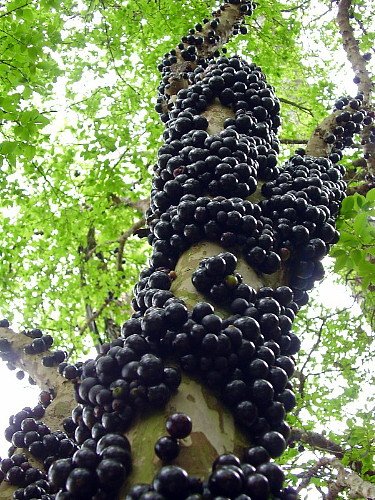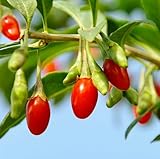Jabuticaba Fruit Tree Plant - 6" Pot - Myrciaria -Tree That Fruits On It's Trunk
Feature
- Also called: Brazilian Grape Tree, Jaboticaba, Jabuticaba, Guaperu, Guapuru, Hivapuru, Sabara, Ybapuru
- Has great tasting blue berries
- Keep evenly moist, not wet or dry
- Hardy in zones 10, patio or indoors
- Immediate shipping in 6" pot
Product Detail
- ASIN: B007JNR7UC
- Item model number:
- Average Customer Review: Customer Reviews
Product Description
The bark of the Jabuticaba is very smooth, creamy tan with a pinkish tint and patches of soft gray. Its habit of peeling off in curls as the trunk and branches expand is similar to the guava and crape myrtle. It is evergreen but sheds half its leaves each spring before new growth begins. The new leaves are pinkish but change to light to medium green. They are closely packed and are narrow and tapering. It blooms several times a year during warm months. The flower has delicate white petals with stamens and comes in clusters on the trunk, large branches and exposed roots. Its edible purple berries are globular shaped, 3/4" to 1 1/2" in diameter and a juicy pulp. The fruit grows directly from the hard wood of the tree and develops very quickly; from open flower to ripe fruit in about three weeks. It is good to eat fresh, in preserves or in ice cream. It thrives in partial shade but will tolerate full sun if kept well watered. Because it is native to a warm climate, it must be protected from freezing temperatures. Water adequately and frequently.
Also called: Brazilian Grape Tree, Jaboticaba, Jabuticaba, Guaperu, Guapuru, Hivapuru, Sabara, Ybapuru. Hardy in zones 10, patio or indoors.





